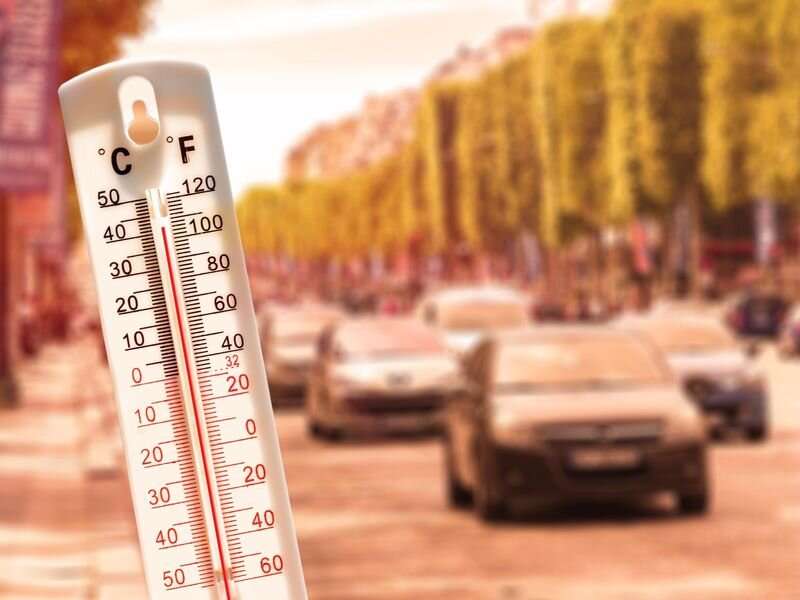This article has been reviewed according to Science X's editorial process and policies. Editors have highlighted the following attributes while ensuring the content's credibility:
fact-checked
reputable news agency
proofread
Heat waves are a hazard for people with dementia: How to keep them safe

Heat waves that hit the triple digits, like the ones now gripping many parts of the United States this week, can create dangerous conditions for folks who are vulnerable.
One vulnerable group is people with Alzheimer's disease or dementia, who may not realize they're developing heat illness. But caregivers can take steps to keep them safer.
"Triple-digit temperatures and heat indexes are especially dangerous for someone with a dementia-related illness such as Alzheimer's disease, because the effects of dementia can impair their ability to notice if they are developing heat stroke or dehydration," said Jennifer Reeder, director of educational and social services for the Alzheimer's Foundation of America (AFA). "Taking a few simple steps will go a long way to help caregivers keep their loved one with dementia safe during the heat wave."
The AFA urges caregivers to watch out for wandering in their loved ones. Wandering is common in people with these conditions and they may not know how to get home or to get help.
Extreme heat adds to the danger of wandering because heat stroke can develop in minutes.
To prevent wandering while fulfilling someone's wish to be active, find ways to do this safely, such as creating walking paths around the home with visual cues and stimulating objects, engaging the person in simple tasks or offering activities such as music, crafts and games. Making sure that basic needs are met can also reduce the chances of wandering.
Always keep a recent photo and medical information on hand, along with familiar destinations, to share with emergency responders if your loved one does wander, the foundation recommends.
Alzheimer's and other dementias can also affect a person's ability to realize they're thirsty, so it's important to monitor your loved one's fluid intake. Encourage them to drink often. Avoid alcohol and caffeinated beverages, which can contribute to dehydration.
Look for warning signs of heat stroke, such as excessive sweating, exhaustion, muscle cramps, rapid pulse, headaches, dizziness, nausea, sudden changes in mental status or skin that is hot, dry or red.
Help someone with these signs cool off with rest in an air-conditioned room, removing clothing, applying cold compresses and drinking fluids. If the person faints, exhibits excessive confusion or is unconscious, call 911.
Many cities will have air-conditioned "cooling centers" during heat waves where people without air conditioning can spend time. These may be in senior centers, libraries, community centers and other public buildings. If your loved one lacks air conditioning, research these in your community, the AFA suggests.
Plan ahead for blackouts and other power failures that can sometimes occur during heat waves.
Keep cell phones, tablets and other electrical devices fully charged. Keep flashlights handy. Have the emergency contact numbers for local utility providers, police and fire departments readily accessible, too.
If you don't live near your loved one, arrange for someone to check on them. Make sure the person checking knows where important medical information can be found. Also ensure in advance that your loved one has plenty of water and access to air conditioning or other cooling devices.
More information: The U.S. Department of Health and Human Services has more on Alzheimer's disease.
Reach out to the AFA Helpline seven days a week by phone at 866-232-8484, text at 646-586-5283 or webchat at www.alzfdn.org. Licensed social workers are available.
2023 HealthDay. All rights reserved.




















